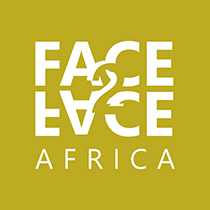Catholics in the U.S. will now have their first African-American cardinal. Wilton Gregory, the archbishop of Washington, D.C., was named among 13 new cardinals by Pope Francis on Sunday in a surprise address from his window overlooking St Peter’s Square in Rome.
The 72-year-old will be installed alongside the new cardinals in a ceremony at the Vatican on November 28. “With a very grateful and humble heart, I thank Pope Francis for this appointment which will allow me to work more closely with him in caring for Christ’s Church,” Gregory said in a statement.
Cardinals, who are the most senior clergymen in the Roman Catholic Church below the pontiff, perform various roles in the Church including electing the pope from among them at a secret gathering referred to as a conclave, BBC reported.
Nine of the 13 new cardinals who come from Rwanda, the United States, Italy, Malta, the Philippines, Chile, Brunei and Mexico are under 80 years old, and this means they will be eligible to vote for Francis’ successor under Church rules. Experts believe Pope Francis, who has now appointed about 60% of cardinal electors, will have an influence on the clergymen who will in future elect his successor.
At the moment, only about 250 of the estimated 37,000 Catholic priests in the United States are African American, according to the U.S. Conference of Catholic Bishops.
Who is Archbishop Gregory?
Gregory, in 1973, started his church career as a priest for the Archdiocese of Chicago before being ordained an auxiliary bishop ten years later. He did not come from a Catholic background as he converted as a child after he started attending a Catholic grammar school in Chicago. In 2001, he was elected president of the U.S. Conference of Catholic Bishops, becoming the first African-American to hold the office.
By 2005, he had become archbishop of Atlanta before being appointed as archbishop of Washington in 2019, replacing Cardinal Donald Wuerl who resigned after being criticized for his handling of sexual abuse cases during his tenure.
Gregory is not only well known today for being one of the most prominent African-American church officials but also for his stance on controversial topics. When George Floyd was killed at the hands of Minneapolis police officers in May, Gregory publicly condemned the police.
“Many of us remember similar incidents in our history that accompanied the Civil Rights Movement, where we repeatedly saw Black Americans viciously brutalized by police on television and in newspaper photos,” Gregory said after Floyd’s death.
“The horror of George Floyd’s death, like all acts of racism, hurts all of us in the Body of Christ since we are each made in the image and likeness of God, and deserve the dignity that comes with that existence.”
Gregory also spoke out against President Donald Trump’s idea to attend the St. John Paul II National Shrine in June for a photo op after demonstrators were teargassed near the White House.
“I find it baffling and reprehensible that any Catholic facility would allow itself to be so egregiously misused and manipulated in a fashion that violates our religious principles, which call us to defend the rights of all people, even those with whom we disagree,” he said.
“Saint Pope John Paul II was an ardent defender of the rights and dignity of human beings,” Gregory added. “His legacy bears vivid witness to that truth. He certainly would not condone the use of tear gas and other deterrents to silence, scatter or intimidate them for a photo opportunity in front of a place of worship and peace.”
One other compelling fact about Gregory is that during his tenure as president of the U.S. Conference of Catholic Bishops, bishops approved a Charter for the Protection of Children and Young People, pledging to respond to abuse allegations in an “open and transparent” manner.
The Charter was adopted in 2002 on the back of years of allegations of abuse by officials of the Catholic Church against minors, as well as, claims that the church has tried to cover up such accusations.




